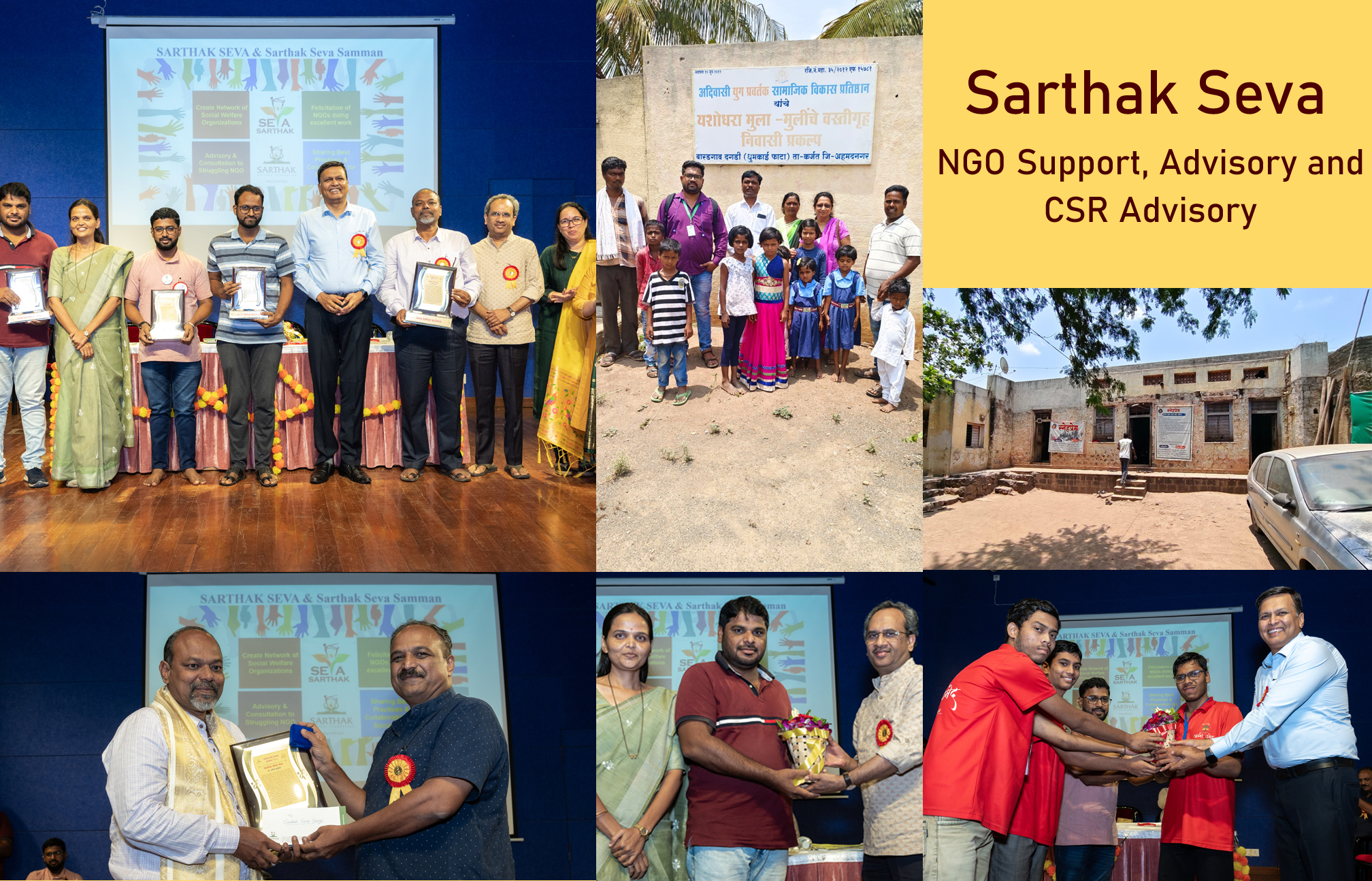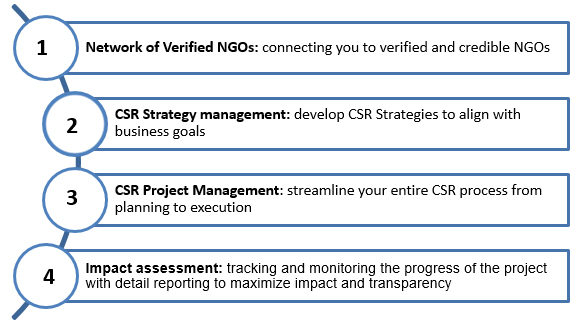Mentoring
Interact - Understand - Empathize - Guide
Mentoring is the unconditional acceptance of a student whilst guiding them on a journey of growth and development. A mentor aims to help his mentee develop goals and guide him in the path to achieving them. A mentor is genuinely invested in his mentees and devotes his time and energy in assisting them in every way possible. Mentoring echoes and reinstates the positive values and cultural heritage being taught.

Our Successful Stories

Skill Enhancement Training Program
Sustainable Soft skill, Professional and Employability skill enhancement training program for Students
“Skill development remains our priority. We are blessed with a demographic dividend that can take us to great heights. Skill development, speed and scale are the 3 important aspects that are relevant to the present-day growth and development module!”. - PM Narendra Modi.
Sarthak Seva – NGO Support, Advisory and CSR Advisory
Sarthak Seva & Sarthak Seva Samman - Working together for positive change! Serving for a social cause!
The Sarthak welfare foundation is committed to fostering development and empowering communities through sustainable practices. To further this mission, we have launched Sarthak Seva, a consultancy and advisory service aimed at NGOs and Corporates.
Bringing a positive change to society is not easy. It requires collective and consistent efforts from passionate individuals, transforming ideas into actions, actions into impactful work, and ultimately into movements that drive social change.


Education
Teach - Discover - Develop - Empower
Empowerment has its roots in education. A country can be successful only by imparting education to its citizens. This education should aim at the holistic development of one’s personality. Success can be achieved only when every individual receives equal opportunities to develop his capabilities. The opportunity for education is every individual’s right and we aspire to make these opportunities available.
Health
Physical - Mental - Psychological - Emotional
We attempt to bridge the gap between physical and mental health by creating awareness and by extending a helping hand towards those suffering from mental and physical illness. We aim to Make people more aware of their psychological well-being whilst promoting physical wellness and coping methodologies for chronic illness, physical disabilities and physiological barriers.


Imparting Skills
Development - Opportunity - Employability
We believe in the power of empowerment, the capacity of individuals, groups and/or communities to take control of their circumstances, exercise power and achieve their own goals, and the process by which, individually and collectively, they can help themselves and others to maximize the quality of their lives. Our aim is to empower and mobilize individuals to enable them to achieve their goals.
A Scholarship & sponsorship Program
for deserving Girl Students
Educating a girl child refers to every aspect of education that aims at developing the skill and knowledge of girls and women. The education of the girl child has the ability of bringing socio-economic changes. When a girl is protected through her rights, the society is assured of its sustainability.

Get involved
You can contribute to our efforts











